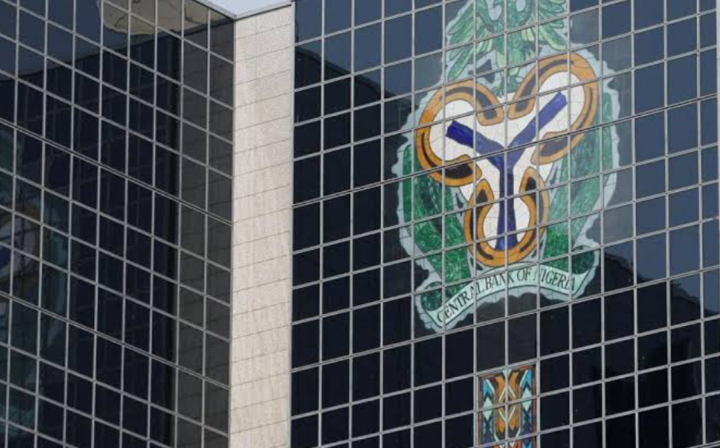Businesses across Nigeria are expressing optimism that the upcoming Monetary Policy Committee (MPC) meeting, scheduled for today, will bring about a reduction in interest rates. This sentiment echoes growing expectations that the Central Bank of Nigeria (CBN) may ease borrowing costs in response to improved inflation dynamics and mounting pressure from the private sector. A rate cut, proponents argue, could help stimulate economic activity, reduce financing costs for firms, and support Nigeria’s fragile recovery.
Over the past two months, consumer price inflation has shown signs of deceleration, creating space for monetary policymakers to consider easing. Inflationary pressures, which had soared above 25 percent in early 2025 due to exchange rate fluctuations and food price spikes, have begun to recede. Key indicators suggest inflation has retreated toward the 22 percent range, raising hopes that price stability may be within reach and policy tightening could soon yield to loosening.

Business leaders contend that a cut in the Monetary Policy Rate (MPR) could deliver meaningful relief. Finance executives from manufacturing, agriculture, and the services sector say that high lending costs—currently pegged at or above 24 percent—have throttled investment plans. Equipment purchases, capacity expansion, and working capital funding have been deferred, they claim, due to the steep cost of credit. They urge the CBN to act decisively now to preserve enterprise sustainability and support growth.
Several chambers of commerce and think tanks have submitted position papers to the MPC, lobbying for a balanced approach. Their recommendations generally include a phased reduction—cutting the MPR by between 100 to 150 basis points—coupled with a complementary easing of the Cash Reserve Ratio and liquidity provisions. In these proposals, businesses stress that any rate reduction should be data-driven and fulfilled in harmony with broader economic considerations like exchange rate policy and monetary transparency.
The MPC will consider a range of economic indicators in its deliberations. Aside from inflation, the committee will examine recent trends in exchange rate volatility, remittance flows, credit extension data, and private sector growth. They will also weigh fiscal-monetary coordination, given the current pressure of Nigeria’s high debt service burden—now consuming more than 50 percent of government revenues. Ensuring that rate adjustments don’t undermine efforts to manage sovereign debt costs will be a central concern.
Banking sector analysts say the CBN faces a delicate balancing act. On one hand, consumers and businesses need lower financing costs; on the other, the central bank must ensure inflation doesn’t rebound. Any premature loosening could reignite price pressure or stoke currency depreciation. The MPC is therefore expected to adopt a cautious stance, prioritizing inflation persistence and external reserves before embarking on a rate cut.
Nevertheless, some indicators are increasingly in favour of easing. Reserve levels have received modest support from improved oil revenues and net purchases of foreign exchange, while the parallel exchange rate has shown signs of stabilization. These factors have eased importation costs and minimized speculative pressures, making the case stronger for monetary flexibility.
Businesses operating in Nigeria’s agricultural value chains are particularly hopeful. Many rely on seasonal borrowing to fund planting and harvest cycles. Private sector lenders have repeatedly cited steep interest as a barrier to disbursing more credit to farmers. Lower rates would make agribusiness financing viable and support national food security and rural livelihoods.
Manufacturers, too, see potential gains. With credit constituting a sizeable part of their financing mix—especially for working capital and inventory purchases—a downward shift in rates could translate into cost savings. This would help firms absorb operating expenses and improve competitiveness amidst current inflationary headwinds.
Similarly, small and medium-sized enterprises anticipate that banks may ease lending conditions if MPR falls. High yields on government securities have entrenched risk aversion in the banking system, directing funds away from commercial lending. Lower policy rates could reduce banks’ preference for government paper and encourage a flow of credit into the productive sector.
Consumer advocates have also urged the CBN not to delay rate relief. They assert that household purchasing power—already eroded by inflation—has reached unsustainable levels. A rate cut could help moderate loan servicing costs, improve consumer finance access, and support recovery in discretionary sectors such as housing and retail.
Still, some economists caution that rate reductions must be part of a broader policy framework. They argue that structural reforms—including fiscal consolidation, tax system modernization, and expansion of non-oil exports—are critical for sustainable growth. Monetary policy alone, they contend, can only do so much in the face of Nigeria’s deeper socio-economic challenges.
As the MPC meeting unfolds today, market watchers will scrutinize not just the rate decision but also the accompanying communiqué. A forward guidance signal or mention of future easing could be nearly as influential as a formal rate cut itself, shaping expectations and influencing investment plans.
In conclusion, businesses across Nigeria are collectively hoping for signalled relief from the CBN through a reduction in policy rates, reflecting a broader desire to rebalance economic stimulus with inflation control. With inflation showing signs of moderation and external pressures easing slightly, today’s MPC meeting represents a pivotal moment. A well-calibrated rate cut has the potential to ease the cost of finance, revive private sector confidence, and reinforce Nigeria’s economic resilience.
Support InfoStride News' Credible Journalism: Only credible journalism can guarantee a fair, accountable and transparent society, including democracy and government. It involves a lot of efforts and money. We need your support. Click here to Donate
